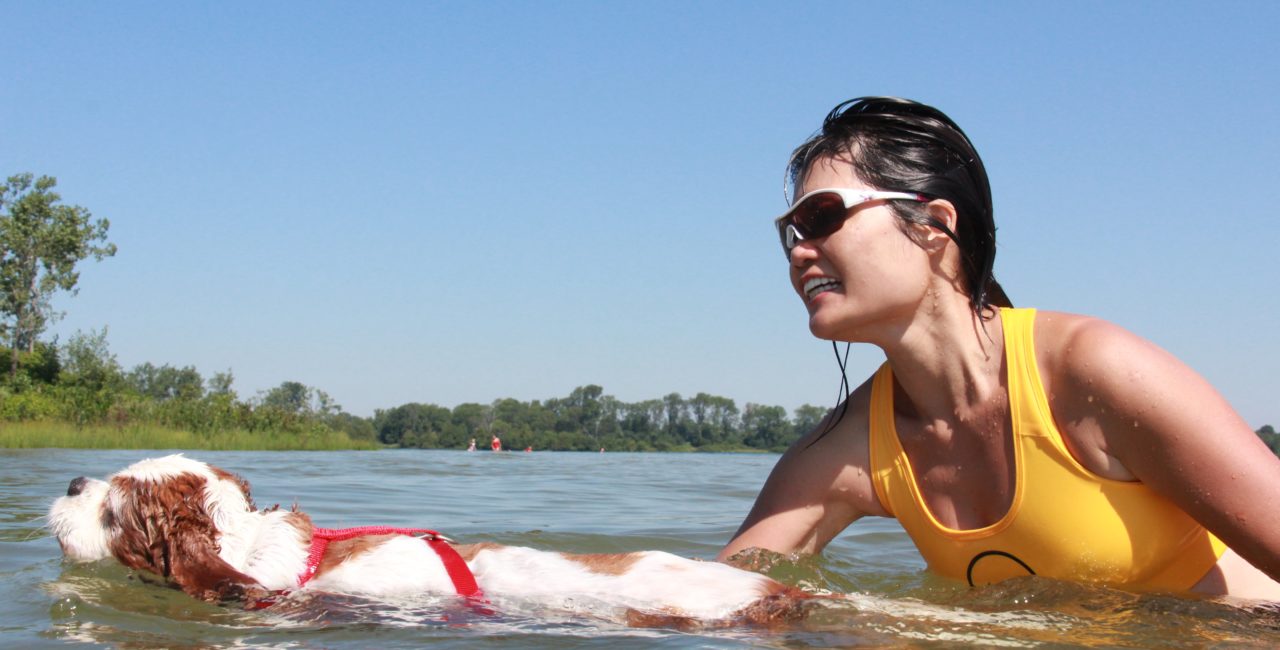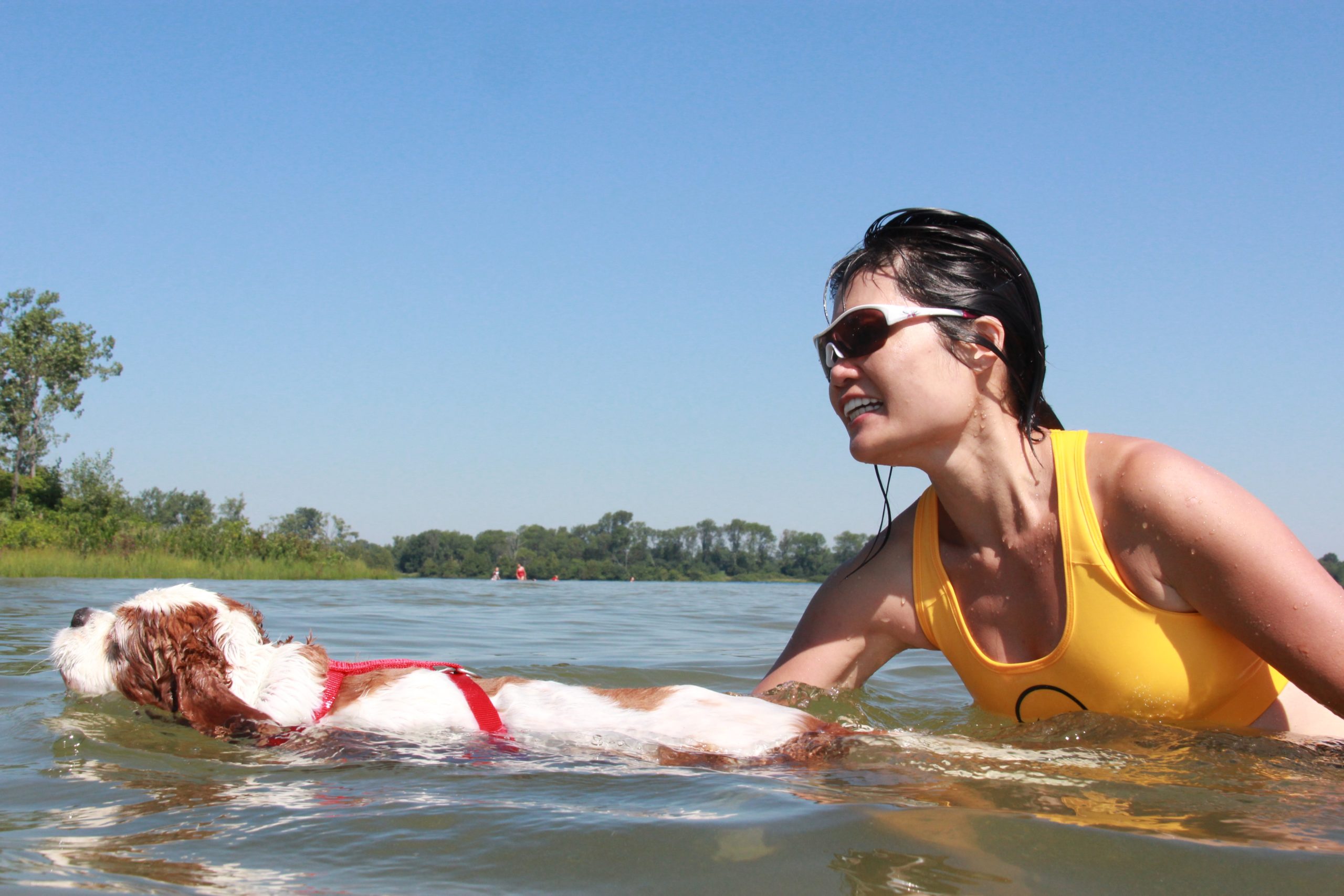Keep your Merlin moving.
With regular workouts on an underwater treadmill, cold laser therapy and swimming sessions at the beach, one of my arthritic patients has a better physiotherapy program than I’ve set up for myself. Merlin is even going to Toronto to be assessed by Dr. Tara Edwards, a veterinary rehabilitation specialist.
Animal physical rehab is a rapidly growing field. Close to the Quinte area we have access to specialized animal massage therapists, chiropractors with training on pets, acupuncturists, several veterinary clinics offering underwater treadmills and many of the electronic tools you’ll find at your own physio office.
For Merlin’s creaky 11-year-old knees and other arthritis-related problems, a comprehensive physiotherapy plan is vital to keeping pain and stiffness at bay. With regular exercise, weight control and attention to problem areas, Merlin is likely to remain comfortable and active throughout his senior years. At least, his chances are much better than if he was overweight, sedentary and allowed to lose muscle tone.
I know from painful experience with sports injuries that although a qualified rehab therapist can help a lot with managing injuries, much of the real work is done at home. With a bit of help, you can set up a program to keep your older dogs active. It has been said many times – age is not a disease. Senior dogs – just like their human counterparts – can keep right on wagging. They don’t have to be twenty pounds overweight and flabby. If they are, any arthritis or other orthopedic problems will be hugely magnified and it becomes a self-defeating cycle.
One of the best exercises for almost any musculoskeletal injury is swimming or resistance training in water. If you don’t have access to a hydro treadmill, join Merlin for a stroll in the shallows of one of our beautiful bays. Just be sure it’s not a “no pets” area and rinse your dog’s coat off afterwards.
Ask your veterinarian to help set up a home exercise and stretching program, with or without specialists involved. Depending on the medical problem – arthritis, injury, or surgical recovery – prescription anti-inflammatories, supplements and other medications may also be recommended. For acute injuries, ice and heat applications are often prescribed.
Stem-cell therapy and treatment with specially prepared blood products called autologous conditioned plasma represent the cutting edge of mobility management in dogs and other species. Eventually, these techniques may become common methods of treating canine joint and muscle or tendon problems. On the other hand, their much-hoped-for magic may prove less powerful than a regular walk at the beach.
Dr. Fiona Gilchrist
Hillcrest Animal Hospital
August 2012






